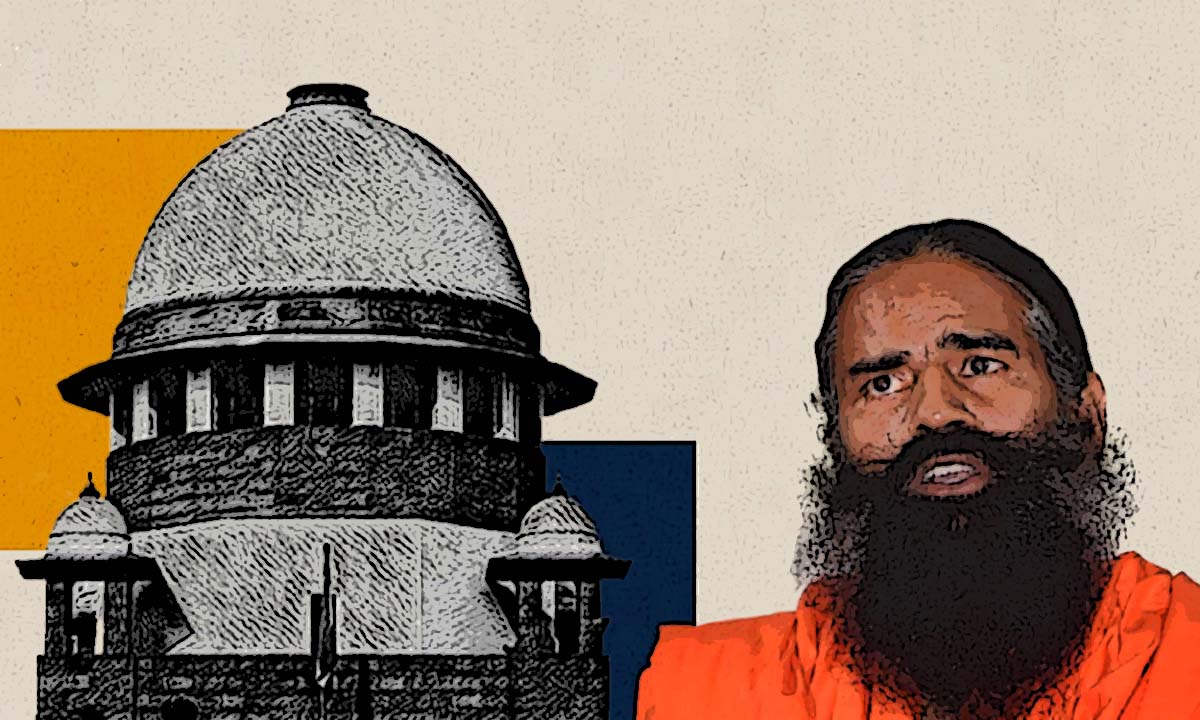
Supreme court issued ban on Patanjali 's marketing advertisements for misleading
Supreme Court issued ban on Patanjali's marketing advertisements for misleading
On 27th February, the Supreme Court issued an interim injunction prohibiting Patanjali Ayurved from endorsing or marketing certain items that purport to treat ailments or conditions listed in the Drugs and Magic Remedies (Objectionable Advertisements) Act, 1954 and issued a contempt of court notice to its managing director Acharya Balakrishna for violating its November order.
A division bench headed by Justice Ahsanuddin Amanullah ordered the Respondents are forbidden from promoting and branding pharmaceutical products that are listed in the guidelines as treating diseases or disorders until further instructions are provided. It is urged that they refrain from making any disparaging remarks about any medical system in print or other media.
Justice Ahsanuddin Amanullah told Additional Solicitor General KM Nataraj, "The entire country is taken for a ride! You wait for two years when the Acts says this (misleading advertisements) is prohibited."
The Indian Medical Association (IMA) accused Patanjali of spreading misinformation
The Indian Medical Association (IMA) filed a writ petition to the court, accusing Patanjali of spreading misinformation and engaging in defamatory actions against evidence-based medicine. Concerns about the misleading advertisements claiming to have a cure for all ailments and discrediting doctors in the process by doubting the efficacy of allopathy and contemporary medical systems were brought up in the petition. It raised concerns in association with terms as a “continuous, systematic, and unabated spread of misinformation” regarding allopathy and the modern system of medicine.
Additionally, the IMA charged Patanjali with inciting misinformation regarding COVID-19 vaccinations and fueling vaccine skepticism. The petition also mentions Swami Ramdev's claimed contempt, mocking, and disdain of residents who were looking for oxygen cylinders during the second wave. The petition stressed that Patanjali has allegedly continued its disdain for the law and violated the mission with impunity, even though the Ministry of AYUSH signed a Memorandum of Understanding (MoU) with the ASCI for the purpose of monitoring deceptive promotions of AYUSH medications. It should be mentioned that the Court made it clear throughout the previous hearings that it was more interested in finding a workable solution to the issue of deceptive medical ads than in turning the matter into an "Allopathy v. Ayurved" discussion.
Representing the Indian Medical Association, senior attorney PS Patwalia emphasized a news conference that Baba Ramdev had attended. According to him, Patanjali Ayurved has issued illegal ads claiming to treat a number of illnesses, such as asthma and diabetes.
During the November 2023 petition, Judge Amanullah warned to levy Rs 1 crore for any product that falsely claimed to be able to treat a particular medical condition. This was a warning given to Patanjali. Following that, Patanjali's lawyer told the court that the company would not produce any more commercials like this. During the 27th February 2024 hearing, the court additionally asked that the central government submit an affidavit outlining the steps it has taken to remove Patanjali in compliance with the Drugs and Magic Remedies (Objectionable Advertisements) Act, 1954. The federal government's witness stated in court that states are mandated by law to prosecute certain forms of advertising.


